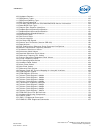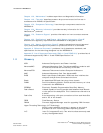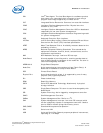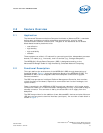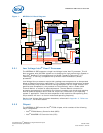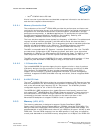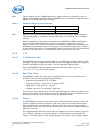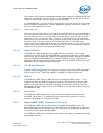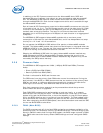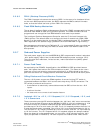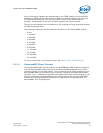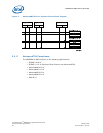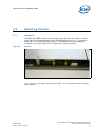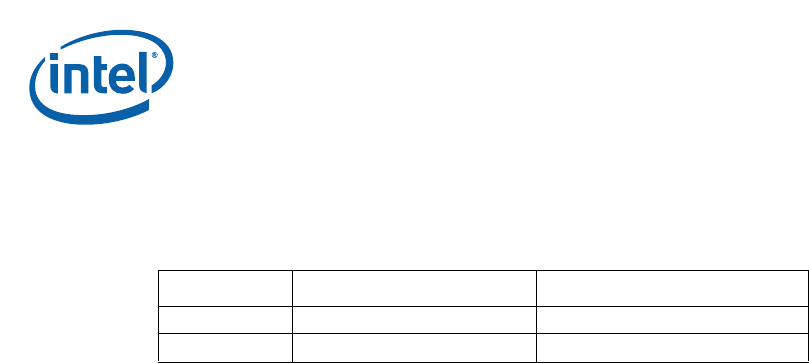
MPCBL0010 SBC—Feature Overview
Intel NetStructure
®
MPCBL0010 Single Board Computer
Technical Product Specification October 2006
18 Order Number: 304120
Note: Two 25-degree 240-pin DIMMs theoretically support memory configurations up to 8
GBytes of PC2-3200 registered DDR2-400 SDRAM, but only memory configurations of 2
GBytes and 4 GBytes have been validated.
Note: See the Intel NetStructure
®
MPCBL0010 High-Performance Single Board Computer
Compatibility Report, available on the Intel web site, for a complete list of validated
memory.
Memory scrubbing is supported and enabled on the MPCBL0010 SBC as described in
the Intel E7520 chipset datasheet. There is no additional configuration or driver
support required. The memory subsystem is periodically checked and cleansed as the
scrubbing process repeats itself over and over. If a correctable memory error is found it
is fixed automatically and a "Correctable ECC" event is sent to the SEL. If uncorrectable
memory errors are found, an "Uncorrectable ECC" event is sent to the SEL.
2.2.4 I/O
2.2.4.1 I/O Controller Hub
The 6300ESB ICH includes integrated USB 2.0 and USB Classic support, SATA, an LPC
interface, a system management interface, a power management interface, integrated
IOxAPIC and 8259 interrupt controllers, and an integrated DMA controller.
See the 6300ESB ICH product-specific documentation as noted in Appendix A,
“Reference Documents”for further details.
2.2.4.2 Real-Time Clock
The MPCBL0010 SBC real-time clock is integrated into the ICH. It is derived from a
32.768 kHz crystal with the following specifications:
• Frequency tolerance @ 25 ºC: ±20 ppm
• Frequency stability: maximum of -0.04ppm/(ΔºC)
2
•Aging ΔF/f (1
st
year @ 25º C): ±3 ppm
• ±20ppm from 0-55º C and aging 1 ppm/year
The real-time clock is powered by a 0.22 F SuperCap capacitor when main power is not
applied to the board. This capacitor powers the real-time clock for a minimum of two
hours while external power is removed from the MPCBL0010 SBC.
2.2.4.3 Timers
The 6300ESB ICH provides three timers. Each is implemented as a single counter with
its own comparator and value register. Each timer’s counter increases monotonically.
Each individual timer can generate an interrupt when the value in its value register
matches the value in the main counter. Some of the timers can be enabled to generate
a periodic interrupt.
The registers associated with these timers are mapped to a memory space (much like
the I/O APIC). However, this memory space is not implemented as a standard PCI
function. The BIOS reports to the operating system the location of the register space.
Table 1. Supported Memory Configurations
Total Memory J10 J12
2 GBytes 1 GByte DDR2-400 DIMM 1 GByte DDR2-400 DIMM
4 GBytes 2 GBytes DDR2-400 DIMM 2 GBytes DDR2-400 DIMM



